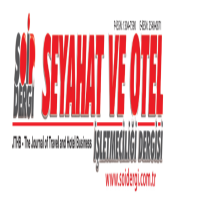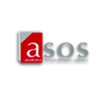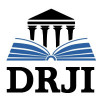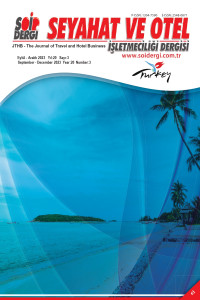Research Article
Aim & Scope
The Journal of Travel and Hotel Business aims to foster communication and collaboration among travel, toruism and hospitality managers, scholars, students and researchers to create a fruitful platfrom where new ideas are generated and shared to bring solutions to ongoing managerial and theoretical issues.
SOID’s publication principles are listed below for your perusal:
- Published three times a year, in Turkish and /or English.
- Along with conceptual studies, empirical (practial/experimental) research is a priority and sectoral reviews are welcome.
- Responsibility for the opinions contained in the articles belongs entirely to the author(s),
- Manuscripts submitted to SOID for publications must be original, should not be published before and should not be simultaneously submitted for publication consideration in another journal.
- Studies submitted to SOID must be prepared in full compliance with scientific ethical rules.
- Manuscripts submitted to SOID for publication consideration are subjected to plagiarism programs to ensure scholarly ethic is sustained. The whole responsibility of opinions expressed in published studies entirely belong to the authors.
- SOID is indexed in Ulakbim Dergipark, an open access system. All published articles are freely accessible as the Journal strongly supports the Budapest Open Access Initiative (BOAI).
- The authors submitting manuscripts to the journal are considered to accept the terms and conditions outlined here in advance.
- Ethical committee approval must be obtained for candidate articles sent to our journal The SOID that require an ethical committee decision. In addition, this approval document should be specified in the method section of the article and should be added to the end of the study.
- Except stated otherwise, academic content of this online version of the journal by SİDAS Publishing is licensed Creative Commons Atıf-GayriTicari 4.0 (CC BY-NC 4.0) Uluslararası Lisansı ile lisanslanmıştır.
- For the candidate articles submitted to our SOID journal, separate ethics committee approval should be obtained for studies that require an ethics committee decision, this approval should be stated and documented in the article (https://trdizin.gov.tr/en/criteria/)
Three different types of studies can be submitted to our journal: theoretical, empirical (applied / experimental) and case studies from tourism businesses.
Theoretical studies; are the studies that present suggestions to tourism enterprises by synthesizing the literature written on a subject. In these studies, the conclusion and suggestions part are important.
Empirical (applied) studies; These are studies prepared by collecting data from tourism enterprises with scientific data collection techniques on a subject. The important part in these studies is the findings, discussion and suggestion sections. Therefore, it is recommended that the authors keep the literature and method sections short.
Case studies in the sector; These are the studies explaining how top and middle level managers in tourism businesses solve a problem they encounter in their businesses (such as crisis or personnel turnover rate etc.), how they apply a new management technique (eg total quality etc.) and how they have achieved an organizational change in their businesses. In these studies, what the managers learned from their experiences and their suggestions on this matter are important. Journal editors and editorial assistants will show the necessary support for writing and editing to managers who wish to submit this type of study. In addition, academics can prepare and send this type of study in the form of articles or interviews with a manager from the sector.
Note: The ethics committee approval must be obtained for the studies sent to our Soid journal and this approval must also be documented.
Note: Our journal has requested an Extended Summary for the candidate studies to be sent as of 2020. The extended abstract should be between 600 and 800 words. The extended abstract should be in English and should include Purpose, Background, Method, Findings, Results, (27 April 2020).
Author Guidelines
Three different types of studies can be submitted to our journal: theoretical, empirical (applied / experimental) and case studies from tourism businesses.
Theoretical studies; are the studies that present suggestions to tourism enterprises by synthesizing the literature written on a subject. In these studies, the conclusion and suggestions part are important.
Empirical (applied) studies; These are studies prepared by collecting data from tourism enterprises with scientific data collection techniques on a subject. The important part in these studies is the findings, discussion and suggestion sections. Therefore, it is recommended that the authors keep the literature and method sections short.
Case studies in the sector; These are the studies explaining how top and middle level managers in tourism businesses solve a problem they encounter in their businesses (such as crisis or personnel turnover rate etc.), how they apply a new management technique (eg total quality etc.) and how they have achieved an organizational change in their businesses. In these studies, what the managers learned from their experiences and their suggestions on this matter are important. Journal editors and editorial assistants will show the necessary support for writing and editing to managers who wish to submit this type of study. In addition, academics can prepare and send this type of study in the form of articles or interviews with a manager from the sector.
Note: The ethics committee approval must be obtained for the studies sent to our Soid journal and this approval must also be documented.
Note: Our journal has requested an Extended Summary for the candidate studies to be sent as of 2020. The extended abstract should be between 600 and 800 words. The extended abstract should be in English and should include Purpose, Background, Method, Findings, Results (27 April 2020).
1. AMPIRIC (APPLIED) STUDIES CHAPTERS
Abstract
• A Turkish abstract is prepared, each of which does not exceed 100 (one hundred) words.
• In the abstract, the purpose of the study, the research method (if any), the research findings and the results and suggestions obtained from the research are summarized.
• A maximum of 5 keywords are added on the subject.
English Title and English Abstract
• Title and summary of the study are given in English under Turkish summary.
Introduction
• General information about the subject is given in the introduction section.
• The importance of the subject in terms of literature and tourism enterprises is briefly emphasized. Some basic definitions can be given.
• Purpose or objectives of the study are given.
• The sections of the study are listed.
• It should not be more than 2 pages.
Literature
• It can be a single section, or it may consist of sub-sections.
• The subject is discussed based on scientific sources.
• The content and subject integrity of the message is more important than the number of references.
• Different opinions about the subject are presented and comparisons are made.
• The problems encountered in the application of the subject in businesses and their reasons can be discussed.
• Literature review should not be like a book chapter (defining - explaining).
• Literature review should be written in a writing style that further analyzes, interprets, gives insight into the application, comments, criticizes and compares the findings of previous studies.
• Authors should avoid unnecessary definitions and explanations.
• Unnecessary numbers, explanations and definitions should be explained in tables and figures if possible.
• It is recommended to keep this section short (maximum 4 pages) in empirical (applied) studies.
Methodology
• This section is not expected to be in theoretical studies and studies in the industry.
• The data collection techniques used should be explained reasonably why and how they were used.
• Research sample and reasons for choosing this sample should be justified.
• How and by which data analysis techniques are analyzed or interpreted should be explained.
• The limitations of the applied method and research findings can be given.
Findings
• This section is not expected to be present in theoretical studies and case studies in the sector.
• Empirical (experimental / applied) data obtained in this section are presented with the help of tables and figures.
• The repetition of the data presented in tables and figures with the same sentences in the text should definitely be avoided. (Example of the wrong presentation generally made: As presented in Table 1, 31% of the participants participated in the study absolutely agree with the related proposition, 49% agree and 15% disagree and 10% strongly disagree, and the remaining 5% Example of preferred or recommended presentation: As presented in Table 1, a significant part of the researchers (70%) participated in the relevant proposition.
Discussion
• In this section, empirical (practical / experimental) findings of the research are discussed in the light of the literature in this field.
• Making a simple, superficial and unrealistic defense in this area or similar areas, as this type of research has not been done before, can be considered as the most important reason for the rejection of a study.
• To what extent the findings obtained support or do not support previous studies in this field and their reasons are discussed.
• The effects of research findings on relevant practices in tourism enterprises can be discussed.
• The problems faced by tourism businesses and the real causes of these problems can be discussed.
• In this section, repeating the research findings exactly or in other sentences should be avoided.
Conclusion and Suggestions
• General results arising from the study are clearly listed.
• What is meant by the results is not the exact duplication of the research findings. Literature is the general conclusions that emerge as a result of findings and discussion.
• The presented findings should be related to the purpose and scope of the research.
• Conclusions and comments that do not directly concern the research objective and are not related to the research findings and discussion should be avoided.
• In the light of the findings of the study, suggestions are made to tourism businesses. These suggestions should definitely be applicable.
• New research topics recommended in the future should be proposed in this field.
Note: Finders and discussion sections or discussion and conclusion sections can be combined when necessary. However, it should not be forgotten that serious consideration and follow-up of the above issues will significantly facilitate the acceptance of the studies sent to SOID.
2. CASE STUDIES CHAPTERS
Abstract
• A Turkish abtract is prepared, each of which does not exceed 100 (one hundred) words.
• Brief information about the purpose of the study and case study is given.
• The general results obtained from the study are listed briefly.
• A maximum of 5 keywords are added on the subject.
English Title and English Abstract
• Title and abstract of the study are given in English under Turkish summary.
Introduction
• The purpose of the study is emphasized.
• Information about the business is given.
• It is expressed how many parts the case stduy consists of.
• Case Study (problem, applied management technique, organizational change made)
• It can consist of one section or several sub-sections.
• Descriptive information is given about the case study.
• Why and how questions are tried to be answered.
• The positive and negative results obtained, and their reasons are explained.
Conclusion and Suggestions
• The results and experiences obtained from the events experienced are listed.
• For example, if the same experience is experienced again, the question of what would be done differently can be answered. Again, what can be learned from this experience can be emphasized.
• Based on the experience, suggestions are made to similar tourism businesses.
3. WRITING RULES
• The study should be written in "Word for Windows".
• Times New Roman (12 font size) should be used as the font.
• The margins of the pages should be 3 cm, line spacing should be 1.5 and the text should be right-to-left blocks.
• Studies submitted to the journal should not exceed 25 pages and 6000 words.
Cover, Summary and Titles
• The first page should include the title of the study, the name of the author and the full address.
• On the second page, the title of the study should be rewritten and a summary in Turkish and English should not exceed 100 'words. The title of the article should be given in English before the English summary.
• The main text of the study should start from the third page and all pages (including bibliography, annexes, tables and drawing sections) should be placed in the middle lower corner with the page number.
• The main topics should be used for the main parts of the study.
• Titles should be written in capital letters, in the middle of the line and in bold.
• Signs such as numbers, italics and underscores should not be used in titles.
Tables and Figures
Tables and figures should be included in the text.
Numbers and tables should be given in the text (such as Table 2 or Figure 3)
Citations in the Text (References)
• Citations must be given in parentheses as the name of the author and the year of publication. For example, some studies support this view (Sönmez, 1998; Yılmaz and Candan, 2001).
• If the author's name does not appear in the sentence, it should be indicated in parentheses with the year and page number.
• Citations should be given in alphabetical order, considering the surnames of the authors.
• When quoted directly, author name, publication year and page number should be given after (:) sign. For example, “strategic planning is an imperative to be fulfilled in hotel operations” (Yüksel, 2000: 24).
• More than four lines, direct quotations must be taken from the right and left and must be given separately from the main text.
• In references to sources with more than two authors, the surname of the first author and “et al.” must be used. For example (Tekin et al., 1984).
References
• Sources referred to in the text include the surname of the author (or compiler), the surname of the first author if it is multi-author, if the source belongs to an institution (eg Ministry of Tourism) or alphabetical, taking into account the initial letter of the institution or periodical. It is arranged in order.
• If reference is made to more than one publication of an author or group of authors, these sources are listed starting from the date of publication. If these sources were published in the same year, letters such as a, b, c are listed next to the year of publication.
Books
• Mercek, K. (2000), Tourism Business Management, 2nd Edition, Istanbul: Beta.
• Olsen, M., Tse, E., and West, J. (1998), Strategic Management in the Hospitality Industry, 2nd Edition, New York: John Wiley & Sons, Inc.
Book Chapter
• Zhao, J. ve Merna, K. (1992), ‘Impact Analysis and the International Environment’ inside R. Teare and M. Olsen (Editors), International Hospitality Management: Corporate Strategy in Practice, pp. 3-30, London: Pitman.
Articles
• Okumuş, F. (2003), “İşletmelerde Kriz Yönetimi ve Krizlerin İşletmeler Üzerine Etkileri”, Atatürk University Journal of Economics and Administrative Sciences, 17 (1), pp. 199-212.
• Taylor, M. and Enz, C. (2002), "Voices from the Field GMs' Responses to the Events of September 11, 2001", Cornell Hotel and Restaurant Administration Quarterly, 43 (1), pp. 7-20.
Thesis
Candan, H. (1999), Personnel Education in Small Scale Companies and A Field Research in Muğla Region, Unpublished Master Thesis, Mugla University, Institute of Social Sciences, Mugla.
Articles from magazines and similar magazines
• Tourism Request (2002, September). Economist, 21, pp. 47-52.
Newspaper article (without author)
• ·Tourism and Environment (2003, May 15) Hürriyet, p. 1.7.
Electronic Article
• Vanden, G., Knapp, S., and Doe, J. (2001). Role of Reference Elements in the Selection of Resources by Psychology Undergraduates [electronic version]. Journal of Bibliographic Research, 5, 117-123.
Citation from the Internet
• Hürriyet (2003), 'Banks', www.hurriyetim.com.tr/haber (24.10.2003).
4. EVALUATION PROCESS
SOID is a refereed journal and the studies submitted are examined in a three-stage evaluation process.
1.Pre-assessment: The editor examines the study sent to the journal in terms of content and form and decides whether it is worth sending to the referees. If he does not find it worth sending to the referees,
• Recommend some improvements to the author (or authors) that should be made in the study, or
• Notifies the author (or authors) that the study is not eligible for SOID.
• If the editor finds it worthy to send the study to the referees, he will forward the study to three referees who are experts in the field.
2. Referee Evaluation: The referees evaluate the study considering the journals’ Evaluation Guide, prepare their reports and send them to the editor. The referees evaluate the study according to the method of double-blind review.
3. Final Evaluation: The editor makes the final evaluation, taking into account the reports from the referees and sends the referee reports together with his or her own report to the author (or summers). When a correction is requested from the author as a result of the final evaluation, all the stages of the evaluation process are applied to the articles sent by the author by correction. In order for a study to be accepted, at least two referees are required to have a positive report. The authors are advised to keep the referee reports sent to them and all their correspondence with the editor.
It is certain that the studies submitted by the authors will also contribute significantly to the issues listed above, to shorten the evaluation process and to accept their studies.
5. APPLICATION FEE
In case the Candidate Article sent to SOID is rejected in the preliminary evaluation to be made by the editorial board, the application fee is not paid from the authors.. If the article passes the preliminary evaluation by the editorial board, an evaluation fee of 30 Dolars must be deposited into the bank account to be notified by the publisher in order to cover the costs for the journal (01.01.2023).
6. ARTICLE SUBMISSION
All communication with the journal will be done via the internet. For this reason, the articles to be sent to the journal should be sent to https://dergipark.org.tr/tr/pub/soid
Ethical Principles and Publication Policy
Journal of Travel and Hotel Business® is a peer-reviewed journal where original research and review articles are published four months by Sidas Media Agency Advertisement Consultation Ltd. (Cankaya, Izmir, Turkey) in the field of food science and technology. In order to improve the overall scientific quality of the journal, following guidelines have been established by the publisher.
1. Editorial Policy
- General Guidelines stated in the COPE - Code of Conduct and Best Practice Guidelines for Journal Editors and The Core Practises are followed by all papers submitted to Journal of Travel and Hospitality Management. Prior to submission, authors are highly recommended to read the Journal’s Instructions to Authors. Authors should also follow the European Association of Science Editors (EASE) Guidelines for Authors and Translators of Scientific Articles to be Published in English. For any research involving human or animal data, the recommendations of the International Committee of Medical Journal Editors (ICJME) should be followed by the authors of the manuscripts.
2. Peer review
- All contributions are evaluated according to the criteria of originality and quality of their scientific content.
- All manuscripts pass through an initial screening process (technical and overall quality evaluation) in the editorial office followed by an internal review by the technical and scientific editors.
- After the first evaluation, editors have the right to decline formal review of a manuscript if it is (i) on a topic outside the scope of the Journal, (ii) lacking technical merit, (iii) fragmentary and providing marginally incremental results or (iv) poorly written.
- If the manuscript is considered suitable for further evaluation, manuscripts are double-blind-reviewed by a peer review system involving at least two independent reviewers to ensure high quality of manuscripts accepted for publication.
- If requested, the revised version is evaluated by the reviewers, and editors make a decision about final acceptance based on their suggestions. If necessary, further revision can be asked for to fulfil all the requirements of the reviewers.
- The final version is then sent to the technical editor in order to produce a galley proof, and the authors receive this proof for final check before publishing.
- All manuscripts are posted online as pdf files in their final form, indexed in databases with the assigned DOI numbers.
3. Confidentiality
- Editors handle all papers submitted to Journal of Travel and Hospitality Management in strict confidence. With the exception of reviewers, they do not disclose any information regarding submissions to third parties, unless in case of a suspected misconduct, where COPE recommendations are followed. Submissions are also confidential for reviewers and they are not allowed to share or distribute any part of the manuscripts which they receive for evaluation to third parties. For a case of suspected misconduct, reviewers are encouraged to contact the editorial office immediately in a confidential manner. Reviewers can also recommend a particular course of action in their confidential comments to the editor, following Code of Conduct and Best Practice Guidelines for Journal Editors and The Core Practises.
- Journal of Travel and Hotel Business conducts a double-blind peer review process, i.e. the names of the reviewers are confidential to ensure the critical evaluation of the work. Reviewers are asked not to disclose their names or contact details in their comments for authors.
- The Review obeys laws on confidentiality in Turkey. It is for the Review to protect the confidentiality of individual information obtained in the course of research or professional interactions. It is therefore almost always necessary to obtain written “informed consent form” for publication from people who might recognise themselves or be identified by others.
4. Authorship
- An author is an individual who substantially contributed to the idea or design of a research, acquisition of data, analysis or interpretation of data, was involved in drafting, writing or revising the manuscript critically for important intellectual content.
- Other contributors should be mentioned in the Acknowledgements section of the manuscript and cannot be considered as authors of the study.
- Correct and full names of all authors and their ORCID IDs should be on the title page of the manuscript. Names of authors must be supplemented with their affiliations and a valid address of the corresponding author.
- The phone and fax numbers and e-mail address of the corresponding author should be stated in the first page of the manuscript. All authors must guarantee that the submitted manuscript is not published anywhere previously and will not be submitted to anywhere before the editorial board makes a final decision on the manuscript.
- Author(s) should avoid using a sexist and discriminatory language.
- Any potential or apparent conflict of interest, including funds and grants received, must be disclosed. Texts must not violate the privacy and intellectual property rights of a third party.
- The author(s) should document the usage rights of the data they employ in their studies, the necessary permissions related to it, and the consent of the participants on whom they have researched, to submit, if requested.
- Moreover; It must be stated by authors that an “informed consent form” was acquired in representation of any research data, Obtaining and specifying permission for the use of properties belong to third parties, such as use of scales, questionnaires, photographs, and any other materials.
5. Funding sources
- Details for all funding sources of the research should be stated in the Acknowledgements. Authors should provide the full official funding agency name(s) and grant number(s).
6. Alteration in authorship
- Alteration in authorship after the submission of the manuscript to Journal of Travel and Hotel Business can be justified only by the additional work required during the revision.
- Any change is not allowed after the acceptance of the manuscript for publication. Alteration in authorship should be indicated in the responses to reviewers, and should be accepted by all authors. The corresponding author is primarily responsible for any alteration in the revised version of the manuscript, including the order of authors.
7.Correction of data
- All authors should be responsible for the accuracy of the published data. For the correction of data, the corresponding author receives the galley proof of the paper and is asked to correct it carefully within 4 days before publication.
8. Retraction of an article
A retraction of an article is used to correct errors in submission or publication. Authors can retract the paper and should follow the Committee on Publication Ethics (COPE) retraction guidelines. In case of a duplicate or overlapping publication, fraudulent use of data, plagiarism or unethical research, the paper will be retracted by the editor, and a retraction notice will be included into the electronic database while all links to the retracted article will be maintained.
9. Ethical considerations
Conflict of interest
- Authors should declare any conflict of interest in their submission form. Authors are requested to suggest at least three potential reviewers before submission, and these reviewers cannot be their colleagues, collaborators or members of their institutions.
- Reviewers should notify the editors on any conflict of interest which prevents them from reviewing the paper, and they are recommended to follow the COPE guidelines.
- For the manuscripts submitted by the members of the Editorial Board or their collaborators, peer reviewing is modified to exclude them from the entire evaluation process in order to minimize any bias during the evaluation.
- During revision, the editors follow the Code of Conduct and Best Practice Guidelines for Journal Editors and The Core Practises .
Research involving human subjects, animals or plants.
If the research involves humans or animals, the authors are recommended to follow the guidelines of the International Committee of Medical Journal Editors.
- In studies involving human subjects, their informed consent to participate in the study should be supplied by the authors. For subjects under the age of 18, their parents or guardians should give the permission for their participation in the study.
- For all tested subjects, the manuscript must accompany with a statement detailing compliance with relevant guidelines and/or appropriate permissions or licenses.
- Any experimental research on plants, including collection of plant materials, must comply with institutional, national, or international guidelines.
Field studies should be conducted in compliance with local legislation, and a statement specifying the appropriate permissions and/or licences should be included in the manuscript.
Publication misconduct:
- The Journal follows the Code of Conduct and Best Practice Guidelines for Journal Editors and The Core Practises.
- In a case of a suspected misconduct such as redundant or duplicate submission, plagiarism, text recycling, violation of ethical norms, etc., researchers, reviewers or readers are encouraged to contact the Editorial Office (muammermesci@yahoo.com.tr).
- The overlapping in the manuscript is highly restricted to the maximum of 15% with no more than 5% from a single source; otherwise, the manuscript will be rejected. If these terms are violated, COPE recommendations will be followed and all parties involved will be notified.
10. Copyright
- Journal of Travel and Hotel Business applies the Creative Commons Attribution Non-Commercial 4.0 CC BY-NC license to all published papers, which permits use, distribution and reproduction in any medium, provided the original work is properly cited and is not used for commercial purposes.
- Before publication, the Copyright Transfer Form must be signed by the corresponding author and returned to the editorial office of the journal.
- Copyright of published papers is retained by the Sidas Media Agency Advertisement Consultation Ltd. (Cankaya, Izmir, Turkey). Authors have the right to use their published article freely and in noncommercial purposes, as long as its integrity is maintained and its original authors, citation details and publisher are clearly stated.
- Individual users may access, download, copy, display, and adapt the manuscripts published in Journal of Travel and Hotel Business, provided that the authors’ intellectual and moral rights, reputation and integrity are not compromised.
- Users must ensure that any reuse complies with the copyright policies of the owners. If the content of the published manuscripts is copied, downloaded or otherwise reused for noncommercial research and educational purposes, a link to the appropriate bibliographic citation (authors, journal title, manuscript title, volume, year and page numbers, and the link to the published version on the Journal’s website) should be provided. Copyright notices and disclaimers must not be deleted.
Price Policy
In case the Candidate Article sent to SOID is rejected in the preliminary evaluation to be made by the editorial board, the application fee is not paid from the authors. If the article passes the preliminary evaluation by the editorial board, an evaluation fee of 30 Dolars must be deposited into the bank account to be notified by the publisher in order to cover the costs for the journal
Indexes
Journal Boards
Chief Editor

Türkçe
Founder Editors

Assistant Editor

Field Editors

Case Study Editor

Language Editor

Scientific Advisory Board

Orhan Icoz is full Professor of Tourism Management at the Department of Tourism Guidance, School of Applied Sciences, Yasar University in Turkey. He graduated from the Faculty of Business Administration, Department of Marketing, at Ege University in 1977, and he subsequently obtained his master’s degree from the Department of Tourism Management at Dokuz Eylül University in 1982, and gained his Ph.D. degree from the Department of Tourism Management, Dokuz Eylül University in 1987. He became associate professor in 1991 in the field of tourism management and assigned as full professor in 1997 at Dokuz Eylül University, Faculty of Business, Department of Tourism Management. His research interests include Economics of Travel and Tourism, Tourism and Hospitality Marketing, Travel and Tourism Market Research, Tourism Planning and Policy.


Typesetting-Layout
Proofreader


Seyahat ve Otel İşletmeciliği (Journal of Travel Business) is licensed under a Creative Commons Attribution-NonCommercial 4.0 International (CC BY-NC 4.0).
Our journal is indexed by EBSCOhost, Index Copernicus, Ulakbim, DRJI, Research Bible, SOBİAD and ASOS.













